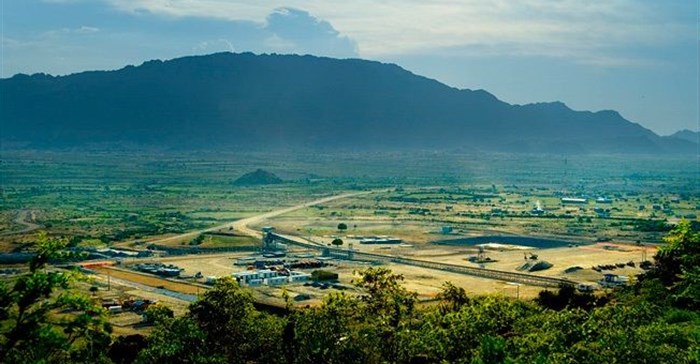Mining companies need to create a social grant system for workers they retrench when a mine suspends operations. Responding to news that the Bokoni platinum mine in Limpopo has been placed in a two-year period of care and maintenance to regain its financial strength, the Bench Marks Foundation said that responsibility to workers and communities does not end there.

Bokoni platinum mine. Picture Atlatsa
Such mines and their owners – Bokoni is owned by Atlatsa Resources (51%) and Anglo American Platinum (49%) – could not simply ignore the impact that their action will have on the communities around them when they lay off workers, the foundation said.
The owners announced their intention to cut their losses and mothball operations, as Bokoni has not been profitable since 2009. After years of failed efforts to restructure the mine to be sustainably profitable and with the financial assistance of Amplats, the Bokoni mine recorded R500m of cash outflow in the first six months of this year. The decision will also affect more that 2,600 jobs.
"In the circumstances, the Bokoni joint venture partners are no longer able to continue funding losses at the mine with no reasonable short- to medium-term turnaround prospects," Atlatsa said in a note to investors after suspending morning trade in its JSE-listed shares. As part of the decision. Amplats will also be writing off the junior miner’s R4.2bn debt.
Duty of care
Having taken the land from people living on it in the first place, the onus was on mining companies to ensure sustainable life for affected communities, John Capel, Bench Marks executive director, says. “Communities such as Monametse, Sefateng, Mosotse and other nearby villages are going to be deeply affected by Bokoni’s decision.
“The mine has failed to help people in these villages generate a sustainable income. Most of these villagers’ ploughing fields have been denuded by mining operations, and there are still a lot of people living in abject poverty,” he said.
In addition, one of the biggest fears of communities is that the mine will use this “suspension” as a way of shirking the legal requirement to rehabilitate the land.
“There are many unanswered questions around the Bokoni mine. Once a mine’s operation is suspended, what onus is on it to continue operations once the suspension period has passed? How can we be sure that the same workers will be employed? How will infrastructure such as boreholes be maintained in good working order? What about the state of the roads that are used to take children to school, for example?” Capel asked.
He called on Bokoni management to provide a full and detailed account of its plans to address these issues during the suspension period.















































